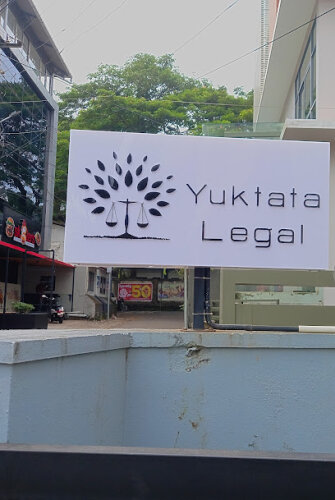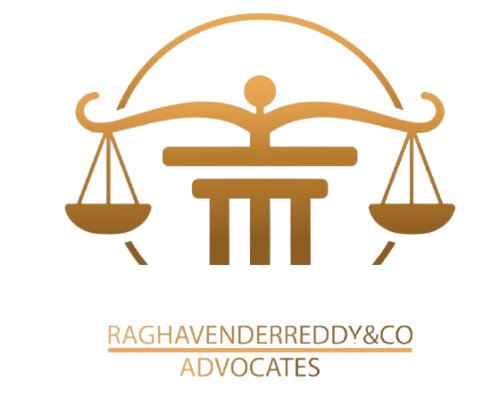Best Public-Private Partnerships (PPP) Lawyers in India
Share your needs with us, get contacted by law firms.
Free. Takes 2 min.
Or refine your search by selecting a city:
List of the best lawyers in India
About Public-Private Partnerships (PPP) Law in India
Public-Private Partnerships, commonly known as PPPs, refer to cooperative arrangements between government bodies and private sector entities for the provision of public assets and services. In India, the PPP model is widely used in sectors such as infrastructure, transportation, health, education, urban development, and energy. Through PPPs, the government seeks to leverage private investment, expertise, and innovation to improve service delivery while sharing project risks and rewards.
The legal framework for PPPs in India is a combination of central and state-specific laws, as well as sectoral policies and guidelines. While there is no single PPP law at the national level, several guidelines issued by the Department of Economic Affairs (Ministry of Finance) and NITI Aayog provide direction. Various state governments also have dedicated PPP policies and nodal agencies to facilitate projects.
Why You May Need a Lawyer
Engaging in a PPP project involves navigating complex regulatory, financial, and contractual issues. Legal professionals play an essential role in ensuring your interests are protected and all legal requirements are fulfilled. Common situations where legal assistance may be needed include:
- Drafting, reviewing, or negotiating PPP agreements and concession contracts
- Understanding bid documents, requests for proposal (RFP), and evaluating eligibility criteria
- Assessing risks and liabilities in project structures
- Addressing disputes between public authorities and private partners
- Compliance with statutory requirements such as land acquisition, environmental clearances, and sectoral licenses
- Advising on public procurement policies and procedures
- Facilitating financial closure and resolving issues related to project funding
Local Laws Overview
PPPs in India are governed by various laws, policies, and regulatory frameworks. Some key aspects include:
- No unified national PPP act: Instead, guidelines and frameworks by the Ministry of Finance, NITI Aayog, and sectoral ministries provide the roadmap for PPP projects.
- Sector-specific laws: For example, the National Highways Act for road projects, Electricity Act for power projects, and state municipal acts for urban infrastructure.
- Procurement and transparency: The General Financial Rules, Model RFPs, and Model Concession Agreements promote transparency, competitive bidding, and minimize risks of disputes or corruption.
- State PPP policies: Many Indian states have their own PPP policies and agencies to manage local projects.
- Land acquisition and environmental clearances: Laws such as the Right to Fair Compensation and Transparency in Land Acquisition Act and various environmental statutes are significant for project feasibility and timelines.
- Dispute resolution: Contractual disputes are usually subject to arbitration or courts, as laid out in project agreements or by sectoral regulators.
Frequently Asked Questions
What is a Public-Private Partnership (PPP) in India?
A PPP is a collaborative arrangement between a government entity and a private sector partner to finance, construct, operate, and maintain infrastructure or provide public services, typically via a long-term contract.
Are there specific PPP laws in India?
No, India does not have a single, comprehensive PPP law. Instead, projects are governed by a combination of sectoral laws, central government guidelines, and state policies.
Which sectors commonly use PPP models in India?
Common sectors include roads and highways, airports, ports, railways, water supply and sanitation, energy, urban development, health care, and education.
What are the main types of PPP models?
Some popular models are Build-Operate-Transfer (BOT), Build-Own-Operate-Transfer (BOOT), Design-Build-Finance-Operate (DBFO), and Operation and Maintenance (O and M) contracts.
Who can participate in PPP projects?
Private companies, consortiums, and sometimes NGOs or cooperatives can participate in PPP projects, subject to meeting eligibility and technical requirements specified in project documents.
How is risk shared in PPP projects?
Risks are allocated between the public and private sectors based on their capacity to manage them, covering construction, operation, demand, financing, and regulatory risks as detailed in project agreements.
What is the role of Viability Gap Funding (VGF)?
VGF is a financial support mechanism provided by the government to make projects commercially viable if they cannot attract adequate private investment due to long gestation or low returns.
How are disputes resolved in PPP projects?
Dispute resolution mechanisms, such as negotiation, expert determination, arbitration, or judicial proceedings, are usually detailed in project contracts or governed by relevant sectoral regulations.
What is the importance of obtaining legal advice before entering into PPP projects?
Legal advice ensures you understand obligations, risks, and compliance requirements, helping safeguard your interests throughout the project life cycle and minimizing the risk of disputes or liabilities.
Can foreign investors participate in Indian PPPs?
Yes, foreign investors can participate in PPP projects in permitted sectors, subject to Foreign Direct Investment (FDI) norms and other regulatory approvals.
Additional Resources
Here are some resources and organizations related to PPPs in India:
- Department of Economic Affairs, Ministry of Finance: houses the PPP Cell and issues guidelines for PPPs at the national level
- NITI Aayog: offers policy advice, model documents, and sectoral PPP frameworks
- India Infrastructure Finance Company Limited (IIFCL): provides financial support for infrastructure PPPs
- State-level PPP Cells and nodal agencies
- Infrastructure Partnerships Australia and other think tanks for comparative studies
- Bar Council of India and state bar councils for verifying qualified legal professionals
Next Steps
If you are considering participation in or facing issues with a PPP project in India, follow these steps for legal guidance:
- Identify whether your matter involves bidding, project structuring, compliance, or dispute resolution
- Prepare all relevant documents, contracts, correspondence, and notices related to your PPP project
- Contact a qualified lawyer or law firm experienced in PPP and infrastructure laws
- Schedule a consultation to discuss your objectives, challenges, and potential legal strategies
- Seek a written engagement letter detailing the scope and costs of legal services
- Work closely with your lawyer through contract negotiations, project implementation, and dispute management
- Stay updated about policy changes and sectoral developments through official resources and industry publications
Professional legal advice can help you navigate the complexity of PPP projects in India and ensure your interests are fully protected.
Lawzana helps you find the best lawyers and law firms in India through a curated and pre-screened list of qualified legal professionals. Our platform offers rankings and detailed profiles of attorneys and law firms, allowing you to compare based on practice areas, including Public-Private Partnerships (PPP), experience, and client feedback.
Each profile includes a description of the firm's areas of practice, client reviews, team members and partners, year of establishment, spoken languages, office locations, contact information, social media presence, and any published articles or resources. Most firms on our platform speak English and are experienced in both local and international legal matters.
Get a quote from top-rated law firms in India — quickly, securely, and without unnecessary hassle.
Disclaimer:
The information provided on this page is for general informational purposes only and does not constitute legal advice. While we strive to ensure the accuracy and relevance of the content, legal information may change over time, and interpretations of the law can vary. You should always consult with a qualified legal professional for advice specific to your situation.
We disclaim all liability for actions taken or not taken based on the content of this page. If you believe any information is incorrect or outdated, please contact us, and we will review and update it where appropriate.
Browse public-private partnerships (ppp) law firms by city in India
Refine your search by selecting a city.

















